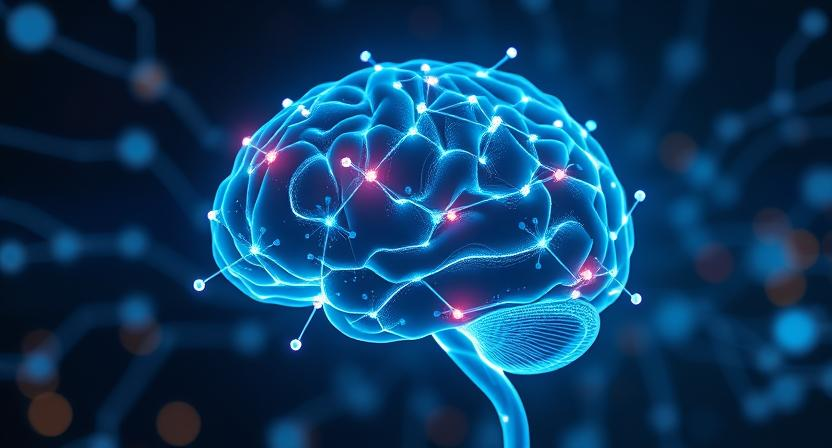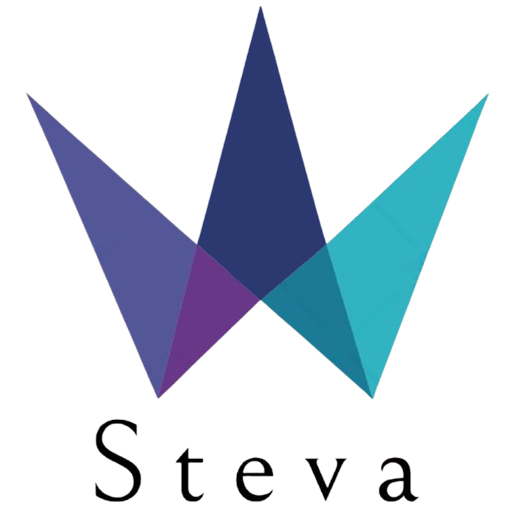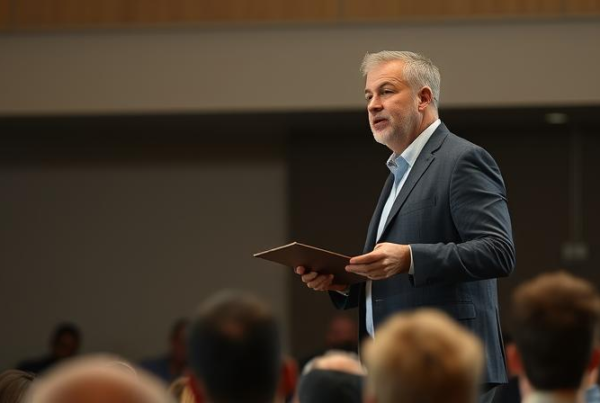You sit down to work. You’re motivated, determined, and ready to conquer your todo list. But suddenly, ding!, your phone buzzes. Your stomach starts growling. Out of nowhere, your brain starts playing that random song from 2013. Sound familiar?
Staying focused feels impossible some days. Whether you’re working from home, studying for exams, or just trying to finish a book, distractions seem endless. The good news? There’s a science backed solution for that.
Learning how to improve focus scientifically is key to overcoming these mental roadblocks. Research reveals proven techniques that can rewire your brain for sharper concentration, better memory, and improved productivity. From brain boosting foods to focus enhancing routines, science holds the answers you need.
So, if you’re tired of losing focus every five minutes, keep reading. These practical, research based strategies will help you regain control and finally get things done.
How to Improve Focus Scientifically

1. Sleep: The Foundation of Focus
No sleep? No focus. It’s that simple.
Think of your brain like your phone. Ever tried scrolling Instagram with 2% battery left? That’s your mind on minimal sleep, sluggish, slow, and begging for a recharge.
Scientists say getting less than 6 hours of sleep can cut your cognitive function in half. HALF. That’s like trying to run a marathon on one leg, possible, but painfully awkward and slow.
So, how do you fix it?
- Stick to a schedule: Same bedtime, same wakeup time. Even on weekends. Yes, that means no Netflix until 3 AM.
- Cut screens before bed: Blue light tricks your brain into thinking it’s noon. No wonder you’re scrolling TikTok at 2 AM wondering why you’re still awake.
- Cool room, dark room: Your brain loves it chilly and pitch black. Basically, sleep like a bat.
- Magnesium & melatonin: Natural sleep boosters that tell your brain, “Shh… it’s bedtime.”
More sleep = Sharper focus. Science says so. Now, hit the pillow like it owes you money.
2. Nutrition: Feed Your Brain, Boost Your Focus
Junk food doesn’t just expand your waistline, it shrinks your brain power too.
Harvard researchers found that high sugar diets reduce brain function. Yep, that morning donut might taste heavenly, but it’s turning your focus into mush.

On the flip side, foods rich in omega 3s, antioxidants, and protein are like premium gas for your mental engine. They sharpen focus, improve memory, and help you power through your todo list like a boss.
- Eat this: Eggs (brainpower bombs), salmon (loaded with omega 3s), nuts (healthy fats galore), blueberries (tiny antioxidant powerhouses), and leafy greens (brain fuel in disguise).
- Avoid this: Sugary cereals (spikes your energy, then crashes it), soda (pure sugar rush), and processed junk (hello brain fog).
Your brain’s an engine, feed it like you’re driving a Ferrari, not a rusty lawnmower.
3. Exercise: Move to Focus Better
Sitting all day? Your brain’s basically throwing a tantrum.
Studies show that just 20 minutes of exercise can boost focus by up to 50%. Imagine getting half your mental energy back, just by moving!
Why does it work? Because exercise floods your brain with oxygen and nutrients, like giving your mind a refreshing splash of cold water.

Best focus boosting exercises:
- Walking: Yes, just a simple stroll can fire up your brain cells.
- Yoga: Perfect for calming that noisy mental chatter.
- Strength training: Lifting weights isn’t just for muscles; it powers up your mind too.
- Cardio: A dopamine boost that keeps your brain feeling sharp and motivated.
You don’t need to become a gym warrior, just move. Your brain doesn’t care if it’s a dance party in your kitchen or a brisk walk in the park. Just get going, and your focus will follow.
4. Meditation: The Secret Focus Weapon
Meditation sounds boring, like watching paint dry. But science says it’s your brain’s secret superpower.
Harvard researchers found meditation thickens the prefrontal cortex, the part of your brain that controls focus and decision making. Think of it as giving your mental muscle a serious workout.
Another study showed that just 10 minutes of mindfulness can improve concentration significantly. Yep, 10 minutes, less time than it takes to scroll Instagram.
So how do you start?
- Use guided meditation apps like Headspace or Calm, no chanting required.
- Do 5 minutes of deep breathing, inhale, exhale, repeat.
- Focus on one thing at a time, even if it’s just your coffee brewing.
It’s simple, powerful, and backed by science. Plus, you can do it without changing out of your pajamas.
5. Hydration: Because Your Brain is 75% Water
Dehydration turns your brain into a grumpy potato. Seriously.
Studies show that even 1% dehydration can reduce focus, memory, and mood. That’s right, one measly percent, and your brain’s already in survival mode.
Solution?
- Drink water first thing in the morning, your brain’s been thirsty all night.
- Keep a water bottle on your desk, think of it as your mental fuel tank.
- Add electrolytes if needed, especially if you sweat like a marathon runner on a treadmill.
Water is your brain’s BFF. Stay hydrated, stay sharp.
6. Cut Out Distractions: Your Brain Hates Multitasking
Multitasking is like juggling flaming torches, except you’re burning your productivity.
- Multitasking reduces productivity by 40%.
- The average person gets distracted every 3 minutes.
- It takes 23 minutes to fully regain focus after an interruption.
That’s like losing half your morning to random cat videos and text messages.
- Turn off notifications: Your phone doesn’t need to beep every time someone likes your meme.
- Use website blockers: Tools like Freedom or Cold Turkey can save your sanity.
- Set dedicated work hours: Let people know, “This is my focus time. Disturb me at your own risk.”
Your focus is precious. Guard it like a dragon hoarding gold.
7. Use the Pomodoro Technique: Work Smarter, Not Harder
Ever feel like your brain taps out after 30 minutes? That’s normal, and the Pomodoro Technique fixes it.
Here’s the magic formula:
- Focus for 25 minutes.
- Break for 5 minutes.
- Repeat.

Why does it work?
- Prevents burnout, Your brain loves mini rewards.
- Keeps your brain fresh, Short breaks reset your mental energy.
- Boosts productivity, Studies show focused bursts improve concentration by up to 60%.
It’s like tricking your brain into thinking, “Hey, this isn’t so bad!” Give it a shot, your todo list won’t know what hit it.
8. Body Doubling: Hack Your Brain’s Accountability System
Ever noticed how you’re magically more productive when someone’s nearby? That’s body doubling in action.
Research shows people are more productive when they know someone else is present, even if that person isn’t paying attention.
ADHD experts swear by it to stay engaged and avoid drifting off.
How to try it:
- Work in a library or a coworking space, that low buzz keeps you on track.
- Pair up with a friend, no more scrolling when they’re watching.
- Join online focus groups, virtual accountability works too!
Your brain loves social pressure. Embrace it, and watch your focus skyrocket.
5 Things That Destroy Your Focus

1. Digital Overload: Your Brain’s Silent Saboteur
Our brains aren’t designed to handle nonstop digital stimulation. Every notification, email, or TikTok scroll demands attention, and attention is limited.
Why Digital Overload Hurts Focus:
- Information Overload: The average person consumes around 20 GB of data daily, that’s like watching 5 movies every day. Your brain struggles to filter what’s important.
- Cognitive Fatigue: Processing endless streams of content exhausts your brain’s working memory, making it harder to focus.
- Reduced Deep Work: Constant interruptions prevent your brain from reaching the flow state, the zone where you produce your best work.
How to Beat Digital Overload:
- The 202020 Rule: Every 20 minutes, look at something 20 feet away for 20 seconds. It refreshes your brain.
- Batch Notifications: Instead of constant pings, schedule times to check your emails and messages.
- Digital Declutter: Unsubscribe from unnecessary emails and delete apps you rarely use.
Your brain thrives on calm. Give it breathing room, and your focus will skyrocket.
2. Lack of Breaks: The Focus Killer in Disguise
Skipping breaks may seem productive, but science says otherwise.
Research from the University of Illinois found that taking breaks every 90 minutes improves focus, creativity, and mental clarity. Why? Because your brain’s attention span naturally declines over time.
What Happens Without Breaks?
- Mental fatigue sets in.
- Decision Making suffers.
- You’re more likely to procrastinate.
Smart Break Strategies:
- 90 Minute Rule: Work in 90 minute sprints, then break for 1015 minutes.
- Active Breaks: Stretch, walk, or grab some fresh air. Movement recharges your brain.
- Mindful Breaks: Deep breathing or meditation can reset your focus fast.
Taking breaks isn’t lazy, it’s brain fuel.
3. Overeating at Lunch: The PostMeal Brain Fog
Ever felt like napping right after lunch? Blame your big plate.
Heavy meals, especially carb loaded ones, send blood to your stomach, leaving your brain running on low power.
What to Eat for Focus:
- Protein Power: Eggs, chicken, or tofu keep your brain sharp.
- Leafy Greens: Packed with antioxidants for mental clarity.
- Healthy Fats: Nuts, seeds, and avocados provide sustained energy.
Stick to balanced meals with 30% protein, 30% healthy fats, and 40% carbs for steady focus all afternoon.
Eat smart. Focus sharper.
4. Noise Pollution: The Silent Focus Killer
Background noise isn’t just annoying, it’s a proven focus drainer.
A study from Cornell University found that persistent noise (like traffic, office chatter, or loud neighbors) raises stress hormones and reduces cognitive performance.
Why Noise Hurts Focus:
- Your brain constantly processes sound, even when you’re not paying attention.
- Loud or unpredictable noise makes it harder to concentrate on complex tasks.
Solutions for a Quieter Mind:
- NoiseCanceling Headphones: Block distractions with tech.
- White Noise Machines: Soft background hums mask disruptive sounds.
- Soft Instrumental Music: Classical, lofi beats, or nature sounds improve focus.
Silence your surroundings. Supercharge your focus.
5. Decision Fatigue: Why Too Many Choices Drain You
Your brain has a limited decision making capacity each day. Waste it on trivial choices, and your focus suffers.
Studies show that people make worse decisions later in the day due to mental exhaustion.
Common Focus Drainers:
- Deciding what to wear.
- Choosing meals last minute.
- Juggling endless todo lists.
How to Beat Decision Fatigue:
- Meal Prep: Plan your weekly meals in advance.
- Outfit Routine: Stick to goto wardrobe combinations.
- Prioritize Tasks: Handle tough decisions early in the day when your brain’s fresh.
Fewer choices = sharper focus. Keep it simple.
Tackle these sneaky focus killers, and your productivity will soar.
Unconventional Focus Hacks That Actually Work

How to Improve Focus Scientifically ADHD: The Brain on Overdrive
ADHD isn’t just about being “distracted.” It’s a brain chemistry challenge.
Research shows ADHD brains produce 25% less dopamine than neurotypical brains. Dopamine is the chemical that controls motivation, focus, and pleasure. Without enough of it, focusing feels like pushing a boulder uphill.
That’s why ADHD brains often swing between two extremes:
- Hyperfocus: You lose track of time on tasks you love.
- Task Avoidance: Boring tasks feel impossible to start.
ScienceBacked ADHD Focus Strategies
1. The 5 Second Rule: Beat Procrastination Instantly
This method, coined by Mel Robbins, is deceptively simple yet incredibly effective. When you feel the urge to delay a task, start counting backward: 5… 4… 3… 2… 1… GO!
Why does it work? It’s all about tricking your brain. The countdown interrupts your mind’s natural tendency to overthink or make excuses. Instead, it switches your brain into action mode by activating the prefrontal cortex, the area responsible for decision making and focus.
Struggling to get out of bed for a morning workout? Countdown, and as soon as you hit “1,” physically move. This small mental push builds momentum and helps override hesitation.
Use this technique to start difficult tasks, break bad habits, or even initiate social interactions when anxiety holds you back. For individuals seeking how to improve focus scientifically ADHD, strategies like the 5 minute rule or task chunking can be incredibly effective. By starting small and gradually building momentum, you can overcome procrastination and improve focus despite ADHD challenges.
2. Visual Cues: Train Your Brain to Stay on Task
Your brain processes visual information 60,000 times faster than text. So, creating strong visual triggers can drastically improve focus.
Here’s how to use visual cues effectively:
- Sticky Notes: Place reminders in key spots, “Email John” on your desk or “Drink Water” near your bottle.
- ColorCoded Lists: Assign colors to different priorities, red for urgent, green for low effort tasks.
- Visible ToDo Lists: Keep your daily tasks in plain sight, on a whiteboard, monitor, or planner.
If you constantly forget to hydrate, placing a large water bottle on your desk acts as a powerful visual nudge.
3. DopamineFriendly Rewards: Trick Your Brain into Loving Boring Tasks
ADHD brains thrive on small wins.
- Reward yourself after completing tasks, even minor ones.
- Create “dopamine triggers,” like marking items off a checklist.
- Use fun incentives, 10 minutes of gaming, a snack, or a favorite show.
Dopamine spikes when your brain anticipates rewards, keeping you engaged.
4. Medication & Therapy: When Science Steps In
For some, ADHD meds like Adderall, Ritalin, or Vyvanse help balance dopamine levels.
Therapies such as CBT (Cognitive Behavioral Therapy) teach focus building skills.
Medication boosts dopamine, while therapy rewires focus patterns.
ADHD brains aren’t broken, they’re wired differently. The key is finding brain friendly strategies that work with your mind, not against it.
Conclusion: How to Improve Focus Scientifically
In conclusion, understanding how to improve focus scientifically can significantly enhance productivity and mental clarity. By adopting proven methods such as mindfulness practices, strategic breaks, and balanced nutrition, you can train your brain to maintain sharp concentration. Research shows that techniques like the Pomodoro method and cognitive exercises can improve focus by up to 30%. Prioritizing sleep, reducing digital distractions, and staying physically active also contribute to long term mental performance. Whether you’re a student, entrepreneur, or professional, following these science backed strategies ensures lasting improvements. Mastering how to improve focus scientifically adhd is the key to unlocking your full potential.





